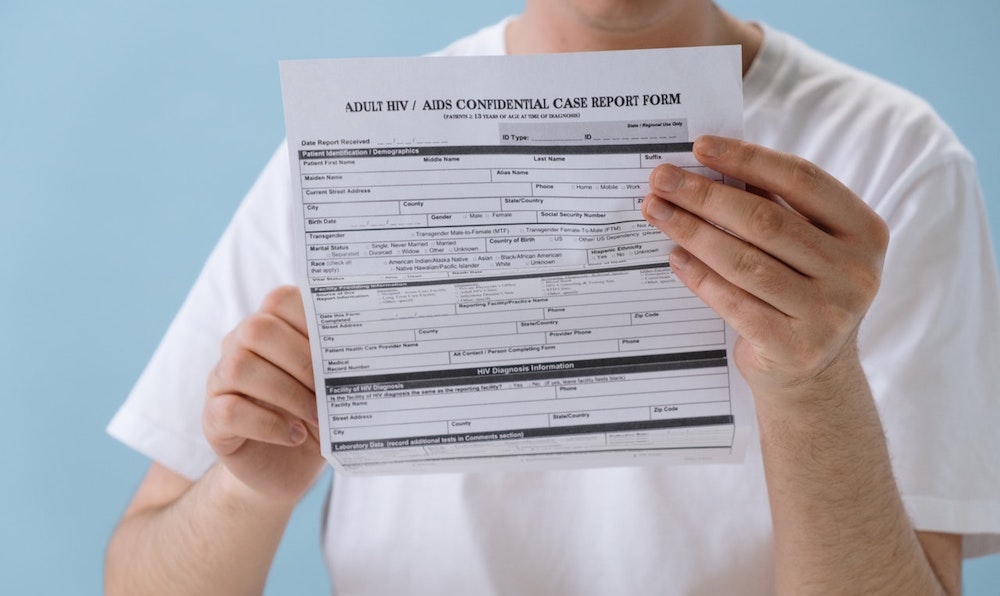Treatment for HIV and AIDS in the Philippines remains a mystery for many. But with a plan to eradicate it by 2030, this has to change now.
The country’s HIV/AIDS campaign is supported by the Meeting Targets and Maintaining Epidemic Control (EpiC) Project, a global initiative funded by the United States that assists countries in achieving HIV epidemic control. EpiC works with organizations as well as private and public health facilities, specifically in NCR and Region 3 where there are high concentrations of HIV cases. We spoke with long-time development worker and EpiC Philippines director Teresita “Bai” Bagasao to learn more about the programs we have and the barriers we still face in curbing infection rates. Here’s how our conversation went.
Tell us about EpiC Project Philippines and the work that you do for the initiative.
EpiC Philippines focuses on filling existing HIV prevention, case finding, and treatment gaps to build the sustainability of HIV services and systems [for] long-term epidemic control.
The goal of the project is to break through the remaining persistent barriers on the 95-95-95 goals adopted by the country. The 95-95-95 target stands for 95% of all estimated number of people living with HIV (PLHIV) should know their status, 95% of all people living with HIV should be enrolled to antiretroviral therapy (ART), and 95% of those enrolled should achieve viral suppression or an undetectable status [by 2030].
What are the U=U and Free to Be U campaigns?
U=U stands for undetectable is equal to untransmissible. This is a global campaign that highlights how effective antiretroviral drugs are in enabling people living with HIV to achieve viral suppression—that is the level of the virus in their body is so low it can no longer be detected by viral load tests.
This is an important message because once a person’s viral load is undetectable, they can no longer transmit the virus through sex, thus [helping] end the stigma around it.
Associated with this is the Free to Be U campaign that was launched last February 14. It aims to raise awareness and understanding of accessible HIV programs and services. It also intends to de-stigmatize HIV and encourage a welcoming approach toward its prevention, testing, and treatment—empowering everyone regardless of HIV status to be free to be themselves.
What are the accessible HIV programs and services in the Philippines?
The national HIV program of the Department of Health (DOH) has made HIV testing and treatment available in clinics and treatment hubs in the country. Civil society partners also have a strong presence in HIV advocacy in the country through community-led and community-based organizations that implement free services. EpiC ensures that both the government and its partners are provided with technical assistance through innovations and learnings from HIV programs in the country and abroad.
HIV testing is provided with counseling. If one is reactive, they are then linked to treatment facilities so they will know their options in terms of when to start on treatment, what sort of regimen [is advised], and so on. Services, such as regular access to antiretroviral drugs, for people living with HIV are free.
If they are nonreactive or not positive, they’re offered free prevention through pre-exposure prophylaxis or PrEP, which is [the short-term use of] ARV, and [provided products] like condoms and lubricant.
“Government has put in place implementing rules, regulations, and mechanisms to ensure that HIV-related discrimination are punishable by law, are reported, and acted upon.”
How important is early diagnosis?
Early diagnosis is very important because early management of HIV through antiretroviral drugs prevents the virus from attacking the immune system of a person living with HIV.
It also strengthens what is known as Treatment as Prevention (TasP) for HIV. Ensuring treatment and achieving viral suppression provides a manageable way to control the epidemic by minimizing transmission in new infections.
EpiC supports DOH in strengthening rapid diagnosis by assisting facilities to be certified rapid diagnostic facilities to ensure that people living with HIV are diagnosed and enrolled in treatment as quickly as possible, including on the same day of their diagnosis.
What are the common misconceptions about HIV treatment?
One of the most common misconceptions is that it isn’t free and that access is limited. But in fact, [ARVs] are available for free in over 160 designated treatment facilities all over the country. With the support from government and development partners, ARVs are prescribed based on the condition of the client.
One positive development is the availability of the new ARV called the Tenofovir, Lamivudine, and Dolutegravir (TLD) Transition which has little to no side effects.
HIV/AIDS cases have been used to discriminate the sexually active, especially those in the LGBTQIA+ community. How should we respond to this prejudice?
Culturally, the Philippines has been and is still considered conservative. This stems from multiple factors including not having comprehensive sex education in schools. HIV advocacy is hopeful that through sex positivity, Filipinos will be more open to discussing sex, its pleasures, the risks it involves, and most importantly, the steps to do it safely. That is why lifestyle HIV campaigns with DOH are important because it normalizes conversations about sex.
Part of the intersectionality of HIV work is a continuous advocacy work on national and local policies that support the LGBTQIA+ community such as anti-discrimination ordinances and legislature. Such policies [help] ensure the LGBTQIA+ community’s right to access health services.
We also still need to promote Republic Act 11166, or the Philippine HIV and AIDS Policy Act, that was signed in 2018. Government has put in place implementing rules, regulations, and mechanisms to ensure that HIV-related discrimination are punishable by law, are reported, and acted upon. There are existing policies, but we need to do more in getting the word out.
“I feel that no person affected by HIV should feel that they are alone.”
What are the barriers that women living with HIV still need to overcome?
Still access to information and services. The face of the HIV epidemic is largely among key populations, particularly men who have sex with men and transgender women. [However,] we fail to recognize that they also have women partners. Transmission actually happens.
They may have less access to information and services but there are existing community support groups of women living with HIV. [An example is] The Association of Positive Women Advocates Inc. which is actually part of a larger network called Network Plus Philippines. Women, cis or trans, and their male partners can also book HIV services through QuickRes.
What’s your message for PLHIV who have yet to find a steady support system?
I feel that no person affected by HIV should feel that they are alone. Government and many organizations in civil society are with them in this struggle and support groups are available through these community-based organizations.
For those who are living with HIV and need support from groups, Free to Be U is here and they can message us through our Facebook page.
The drugs are here. They’re for free. They just need to be accessed.
Photo by cottonbro
Follow Preen on Facebook, Instagram, Twitter, TikTok, YouTube, and Viber


